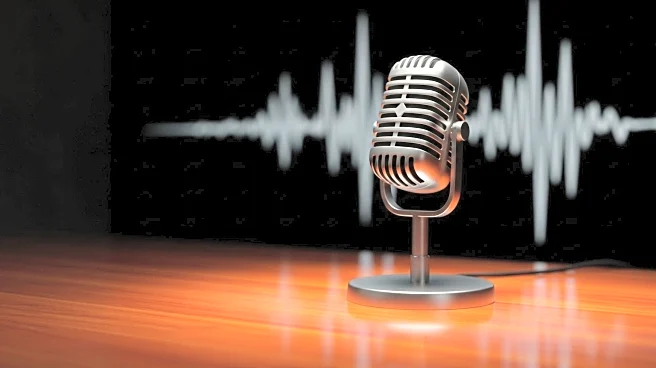What is the story about?
What's Happening?
NPR recently faced listener criticism following an interview between Morning Edition host Steve Inskeep and Peter Navarro, a former adviser to President Trump. During the interview, Navarro referred to Inskeep as 'brother,' a term some listeners found too informal for a professional setting. The exchange was part of a 7-minute edit aired on Morning Edition, which led to discussions about whether such familiarity should be edited out. NPR's executive producer and VP of programming decided to retain the exchange, arguing that it provided transparency and context. The interview, which was also available in a longer format on YouTube, focused on Navarro's book about his imprisonment for refusing to testify before a congressional investigation into the January 6 Capitol attack.
Why It's Important?
The decision to keep the informal exchange in the broadcast highlights ongoing debates about journalistic integrity and the balance between professionalism and transparency. For NPR, a public broadcaster, maintaining trust with its audience is crucial. The incident underscores the challenges media organizations face in navigating the fine line between engaging content and maintaining journalistic standards. The broader significance lies in how media outlets handle interactions with politically charged figures, especially those associated with controversial events like the January 6 attack. This situation also reflects the evolving nature of media consumption, as NPR explores longer formats and new platforms like YouTube to reach wider audiences.
What's Next?
NPR may continue to evaluate its editorial policies regarding informal exchanges in interviews, especially as it seeks to expand its reach through digital platforms. Listener feedback could influence future decisions on how such interactions are handled. Additionally, as NPR and other media outlets increasingly use video formats, they may need to develop new strategies to maintain audience engagement while upholding journalistic standards. The outcome of this debate could set precedents for how media organizations balance transparency and professionalism in politically sensitive interviews.
Beyond the Headlines
This incident raises questions about the role of familiarity in journalism and whether it undermines or enhances the credibility of news organizations. It also touches on the ethical considerations of editing content for broadcast versus digital platforms, where audiences may have different expectations. The broader cultural implications involve the public's perception of media bias and the importance of maintaining a neutral stance, particularly in politically polarized environments.

















